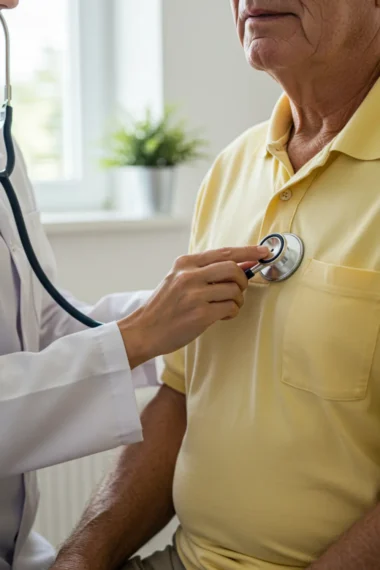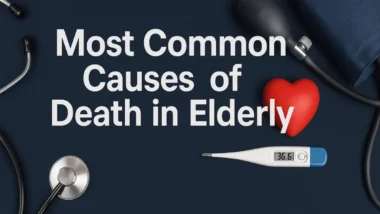Low Blood Sugar Without Diabetes: Causes, Symptoms & Expert Insights
According to the National Institute of Diabetes and Digestive and Kidney Diseases (NIDDK), while hypoglycemia (low blood sugar) is commonly linked with diabetes, it can also occur in individuals who don’t have diabetes. Yes, you read that right. Non-diabetic hypoglycemia is a real and medically recognized condition that can impact your energy levels, mood, and even your safety.
What Is Low Blood Sugar (Hypoglycemia)?
Low blood sugar, or hypoglycemia, occurs when the level of glucose in your blood drops below the normal range. For most people, this threshold is below 70 mg/dL (3.9 mmol/L).
When glucose levels fall, the brain and body are starved of their primary energy source. This can lead to symptoms ranging from mild shakiness to seizures or unconsciousness in severe cases.
Normal vs. Low Blood Sugar Levels
| Status | Blood Sugar (mg/dL) |
|---|---|
| Normal (fasting) | 70–99 |
| Mild Hypoglycemia | 55–69 |
| Moderate Hypoglycemia | 40–54 |
| Severe Hypoglycemia | <40 |
Can You Have Low Blood Sugar Without Diabetes?
Yes, you absolutely can. While it’s more common in people with diabetes (due to insulin or medication), there are two types of non-diabetic hypoglycemia:
1. Reactive Hypoglycemia
- Happens within 4 hours after eating.
- Common in people who’ve had gastric surgery or experience an over-release of insulin after meals.
2. Fasting Hypoglycemia
- Occurs when you haven’t eaten for several hours or overnight.
- Linked to underlying health conditions or medications.
Learn More: Sugar Intake for Diabetics
Top 10 Causes of Low Blood Sugar Without Diabetes
Here’s 10 scientifically-backed reasons why you might experience hypoglycemia—even without being diabetic:

1. Skipping Meals or Prolonged Fasting
When you go long hours without eating, your body runs out of the glucose it normally gets from food. That’s when it dips dangerously low.
Who’s at risk?
- Dieters
- People on intermittent fasting
- Those with poor appetite
2. Medications (Non-Diabetic)
Some medications can lower blood sugar as a side effect—even if you’re not on insulin.
Examples include:
- Quinine (for malaria)
- Beta-blockers like propranolol
- Sulfa antibiotics
3. Alcohol Consumption (Especially on an Empty Stomach)
Alcohol interferes with the liver’s ability to release stored glucose, especially if you drink without eating.
Fact: Even 2–3 drinks on an empty stomach can drop your glucose to dangerous levels.
4. Exercise Without Fuel
Physical activity uses glucose. If you exercise intensely and haven’t eaten enough, your levels can plummet.
Example: Marathon runners often experience this during “hitting the wall” moments.

5. Severe Infections or Sepsis
The body uses more energy fighting infections. Sepsis can impair liver function, reducing glucose production.
6. Hormonal Imbalances
Hormones like cortisol, glucagon, and growth hormone play a huge role in maintaining glucose levels. If your body isn’t producing enough—hypoglycemia can occur.
Common conditions:
- Adrenal insufficiency
- Hypopituitarism
7. Gastric Bypass or Bariatric Surgery
After certain surgeries, food passes too quickly into the small intestine, causing insulin to spike and glucose to crash.
Known as “late dumping syndrome.”
8. Pancreatic Tumors (Insulinoma)
These rare tumors cause the pancreas to overproduce insulin, leading to repeated hypoglycemia.
Occurrence: About 1–4 cases per million people annually.
9. Inborn Errors of Metabolism (IEMs)
Genetic disorders that interfere with the way the body processes sugar or stores glycogen.
Seen more in infants and children, but can manifest later in rare cases.
10. Aging and Malnutrition
Elderly individuals are at risk due to:
- Poor food intake
- Polypharmacy (multiple meds)
- Slower liver function
Learn More: How to Make an Appointment at Social Security Office?
Signs & Symptoms of Non-Diabetic Hypoglycemia
Symptoms often appear suddenly and vary in intensity. Here’s a breakdown:
Mild to Moderate Symptoms
- Shaking or trembling
- Dizziness
- Sweating
- Hunger
- Fast heartbeat
- Irritability or anxiety
- Fatigue
Severe Symptoms
- Blurred vision
- Confusion
- Slurred speech
- Unconsciousness
- Seizures
If blood sugar drops below 40 mg/dL, it’s considered a medical emergency.
How Is It Diagnosed?
Doctors typically follow the Whipple’s Triad to confirm hypoglycemia:
- Symptoms of hypoglycemia
- A documented low blood glucose level
- Relief of symptoms after glucose is consumed
Tests May Include:
- Fasting blood sugar
- Mixed-meal tolerance test (for reactive hypoglycemia)
- Insulin and C-peptide levels (to check for insulinoma)
- Cortisol and adrenal hormone testing
What to Eat to Prevent Low Blood Sugar (Without Diabetes)?
Diet plays a huge role in managing this condition. Here are some smart food choices:
Eat These:
- Complex carbs: brown rice, oats, quinoa
- High-fiber veggies
- Healthy fats: avocado, nuts, olive oil
- Lean protein: chicken, tofu, eggs
- Frequent small meals (every 3–4 hours)
Avoid These:
- Sugary drinks
- Refined carbs (white bread, pastries)
- Skipping meals
- Excess caffeine or alcohol
Treatment Options for Non-Diabetic Hypoglycemia
Short-Term Fixes
- Glucose tablets or gel
- Fruit juice (1/2 cup)
- Hard candy (3–4 pieces)
- 1 tablespoon of honey or sugar
Long-Term Management
- Diet adjustments
- Treating underlying conditions (tumor, adrenal issues)
- Medications like diazoxide or octreotide in rare cases
Doctor’s Insights & Scientific Studies
🔹 Dr. Anne Peters, a leading endocrinologist at USC, notes:
“Non-diabetic hypoglycemia is underdiagnosed. Many patients mistake it for anxiety or fatigue.”
🔹 In a study published by the Journal of Clinical Endocrinology & Metabolism, researchers found that 15–20% of patients presenting with hypoglycemia symptoms did not have diabetes.
Final Thought
Low blood sugar without diabetes may seem uncommon, but it’s more prevalent—and more serious—than many realize. Whether triggered by skipped meals, intense workouts, or underlying medical issues, it’s your body’s way of saying something’s off. With the right diet, lifestyle changes, and medical guidance, you can manage and even prevent these crashes. Stay informed, listen to your body, and don’t ignore those subtle (or not-so-subtle) warning signs. Your health is worth it.
FAQs
Can stress cause low blood sugar?
Yes. Chronic stress can impact cortisol levels, leading to drops in glucose levels.
Is low blood sugar dangerous if it happens once?
Yes, especially if it drops below 50 mg/dL. One-time events may still require a medical evaluation.
Can children have non-diabetic hypoglycemia?
Yes, especially infants with metabolic disorders or toddlers with immature glucose regulation.
Should I be worried if I get shaky or dizzy after meals?
Possibly. That’s a hallmark of reactive hypoglycemia. Speak to your healthcare provider.











